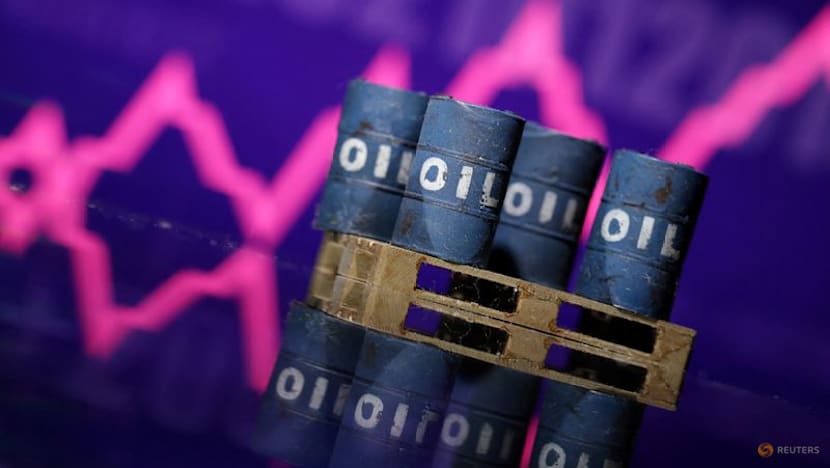Oil jumps after drones strike Russian terminal

Miniatures of oil barrels and a rising stock graph are seen in this illustration taken January 15, 2024. REUTERS/Dado Ruvic/Illustration
Oil prices rose on Friday after a Ukrainian drone attack on a Russian port suspended loadings, outweighing pressure from oversupply concerns and weaker U.S. demand risks.
Brent crude futures rose $1.01, or 1.52 per cent, to $67.38 a barrel by 11:32 a.m. CDT, (1632 GMT) and U.S. West Texas Intermediate crude gained 56 cents, or 0.9 per cent, to $62.93.
The drone attack on Russia's northwestern port of Primorsk, one of the country's largest oil and fuel export terminals, led to a suspension of oil loading operations overnight, an official from Ukraine's SBU security service said.
"Those attacks on Russian energy infrastructure have room to drag down Russian crude and refined product exports," UBS analyst Giovanni Staunovo said.
The Kremlin said on Friday there was a pause in peace negotiations between Russia and Ukraine.
Negotiators have held three rounds of direct talks this year in Istanbul, most recently on July 23, but the two sides remain far apart on how a possible peace deal might look, which could trigger further Western sanctions against Russia.
"Strong sanctions could potentially overshadow the underlying oversupply outlook," said SEB Research analyst Ole Hvalbye.
The Brent and WTI benchmarks fell by 1.7 per cent and 2 per cent respectively on Thursday.
Phil Flynn, senior analyst with Price Futures Group, said crude futures would continue bouncing up and down into the early fall.
"I think we're going to see that back and forth until we're out of the shoulder season," Flynn said.
A monthly report from the International Energy Agency on Thursday said global oil supply would rise more rapidly than expected this year because of planned output increases by the OPEC+ group comprising the Organization of the Petroleum Exporting Countries and allies such as Russia.
However, OPEC's own report later in the day made no change to its relatively high forecasts for oil demand growth this year and next, saying the global economy was maintaining a solid growth trend.
On the supply side, India's largest private port operator, Adani Group, has banned tankers sanctioned by Western countries from entering all of its ports, three sources told Reuters and documents show, potentially curbing Russian oil supplies.
India is the biggest buyer of Russian seaborne oil, mostly shipped on tankers that are under sanctions by the European Union, the United States and Britain.













